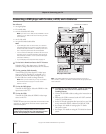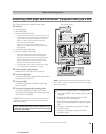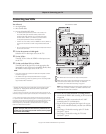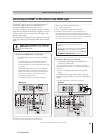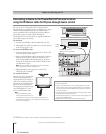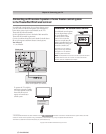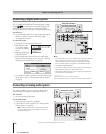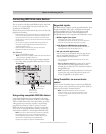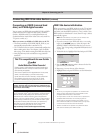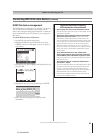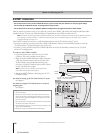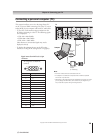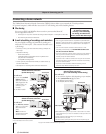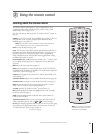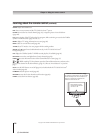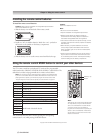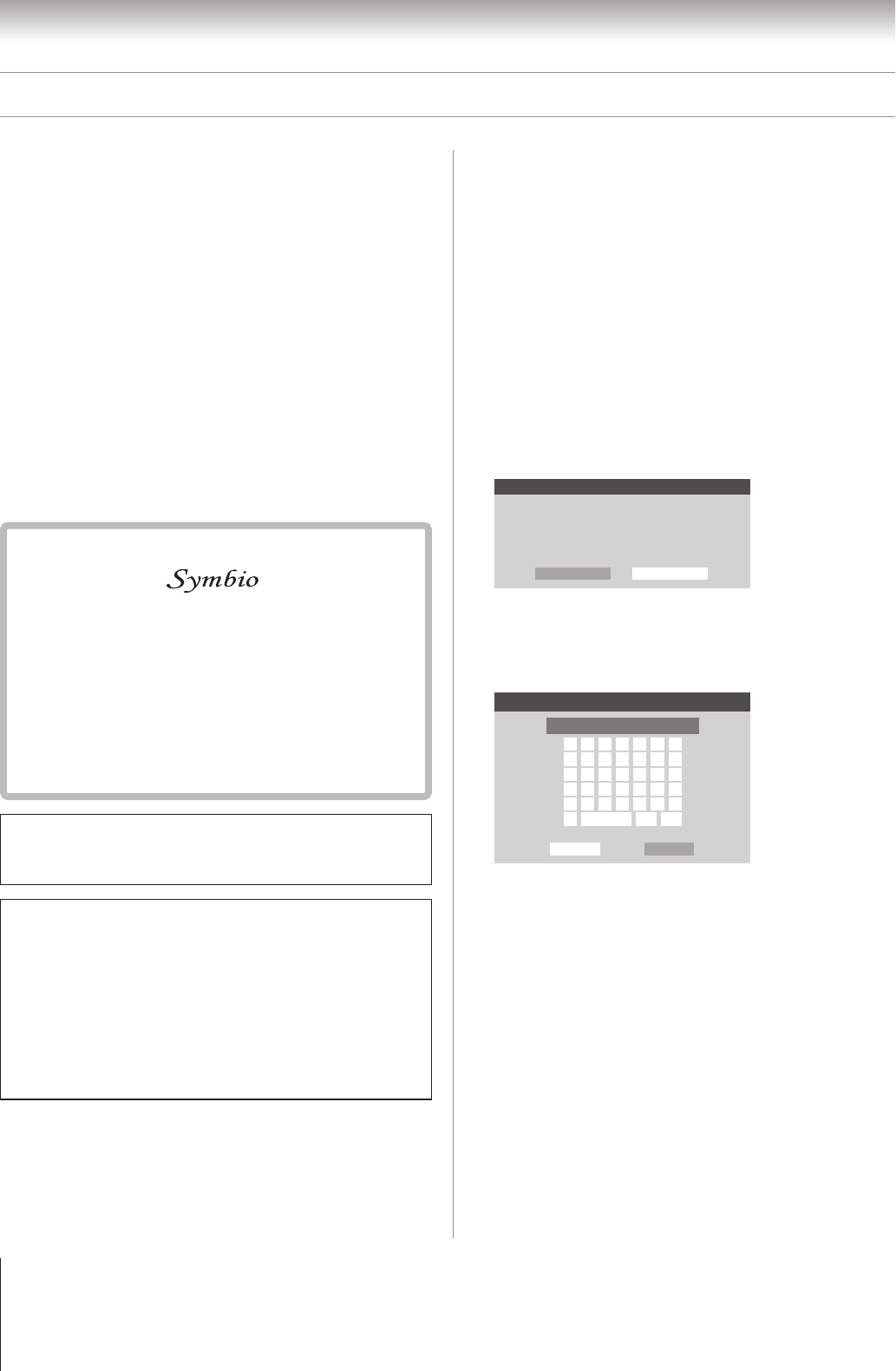
26
Chapter 2: Connecting your TV
Copyright © 2005 TOSHIBA CORPORATION. All rights reserved.
(E) 52/62HMX95
Connecting IEEE1394 video devices (continued)
IEEE1394 device initialization
When you connect a new IEEE1394 device to the TV and turn
it on, the device immediately announces its presence to the TV
(and other networked IEEE1394 devices, if any), and the “New
IEEE1394 Device Initialization” screen (shown in step 2, below)
automatically appears.
Note: With some devices, it may take up to one minute for the
IEEE1394 Device Initialization screen to appear.
1. If you also connected your IEEE1394 device to an analog
input, use the
yzx •
buttons to select the input in the
ANALOG INPUT USED field; otherwise, leave it set to
“None.” (See “Using analog-compatible IEEE1394 devices”
on page 25.)
2. To label the device, highlight Edit Label and press ENTER.
New IEEE1394 Device Initilization
Manufacturer
Device Type
Custom Label
TOSHIBA
AVHD
Edit Label Done
3. Press the
yzx •
buttons to select a character for the first
space and then press ENTER.
4. Repeat step 3 to enter the rest of the characters.
5. Highlight Done and press ENTER to save the information.
IEEE1394 Device Label Edit
Cancel Done
ABCDEFG
HIJKLMN
OPQRSTU
VWXYZ0 1
2345678
9
SPC CLR BS
MY DEVICE_
Note:
• The TV may not recognize incompatible or non-A/V IEEE1394
devices; however, these devices may still be available to other
compatible IEEE1394 devices on the network.
• You may be able to use the TV’s remote control to operate some
compatible IEEE1394 devices. You must first program the
remote control to recognize the device (see Chapter 3). If you
have an IEEE1394 Cable box or satellite receiver, you may need
to use the remote control that came with the device.
• Toshiba is not liable for the operation of any IEEE1394 device
other than the Toshiba Symbio AVHD recorder.
Connecting an AVHD (external hard
drive) or D-VHS digital recorder
You can connect an IEEE1394-compatible D-VHS or AVHD
(audio/video hard drive) digital recorder (such as Toshiba’s
Symbio
™
AVHD Recorder) to record high definition and
standard definition material from either tuner and control live
TV (pause, rewind, etc.).
When you connect an AVHD or D-VHS device to the TV:
• The remote control keys (LIVE, REW, PAUSE, PLAY, etc.) are
automatically activated to allow control of live TV.
• The TV Guide On Screen
®
system is automatically configured to
allow recording to the device.* See Chapters 5 and 7 for details.
Also see page 55 for details on setting the AVHD device skip time.
• Some programs may not be recorded due to copy protection
restrictions.
The unauthorized recording, use, distribution, or revision of television
programs, videotapes, DVDs, and other materials is prohibited under the
Copyright Laws of the United States and other countries, and may subject
you to civil and criminal liability.
TM
*
To enjoy the full benefits of your Symbio AVHD Recorder, you must first set
up the TV Guide On Screen
®
system (see Chapter 5). Full Symbio AVHD
Recorder benefits, including Intelligent One Touch recording, will not be
available unless the TV Guide On Screen
®
system is fully operational.
However, even if the TV Guide On Screen
®
system is not fully operational,
manual recording is available as long as the TV Guide On Screen
®
system
has acquired the necessary date and time data. If you experience any
issues with your Symbio AVHD Recorder, please contact Toshiba
Consumer Solutions by calling (800) 631-3811 or visiting
http://www.tacp.com/customersupport/contact.asp.
This TV is compatible with the new Toshiba
Audio/Video Hard Drive Recorder!
Toshiba’s Symbio™ AVHD Recorder is designed specifically for
high definition television (HDTV) and offers control over digital
video recording and playback.
Think of it as a “tapeless VCR” for digital television. You can pause,
rewind, or use instant replay, so you’ll never miss a thing!
Symbio also offers one-touch recording* of both standard and
High Definition programs through the no-fee TV Guide
On Screen
®
interactive program guide built in to this TV.



